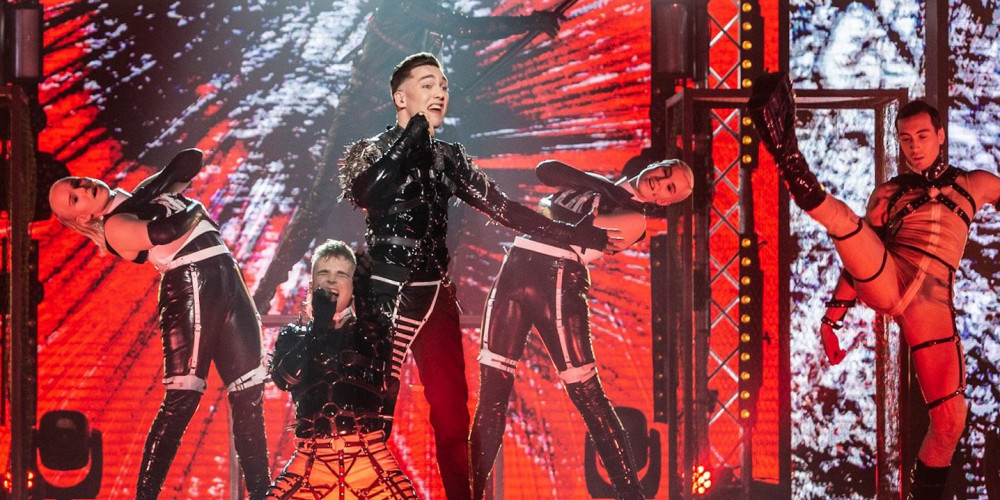
The countdown to the Eurovision Song Contest 2019 has well and truly begun. For months, the drama has been building, the tension has been mounting and the public have been betting. Now with just a few weeks to go before the action kicks off in Tel Aviv, I bring you everything you never ever needed to know about this year’s contest.
Why did Ukraine withdraw? Who will be this year’s dark horse? Which are the acts to watch out for? And who has the most hilarious lyric? Find out below…
1. Who will win the Eurovision Song Contest 2019?
Let’s start with the question we all want to answer: who will win? As ever, it depends who you ask but there are several solid front-runners. Below are (in my humble opinion) the four ‘safest’ options when predicting a winner, but I personally am hoping to be surprised. The below list is also not my personal top selection of songs – I have a totally different top 5 that I will be rooting for.
The Netherlands have been solid favourites with the bookmakers since the song was released back in March. The song, Arcade, is a haunting ballad, sung by Duncan Lawrence, a relative newcomer. His live performances have been very strong, but I am personally not convinced it will top the public vote. The city council of The Hague are already so confident of the Netherlands’ chances, they are discussing hosting the contest. (Listen on: YouTube | Spotify)
Switzerland is another country with a very good chance to win Eurovision 2019. At one point Swiss entry Luca Hänni was as high as second in the odds with bookmakers, but he has since dropped down to fourth. His performance at the Eurovision pre-party in Amsterdam was very well-received. (Listen on: YouTube | Spotify)
Russia is another act to look out for. After withdrawing in 2017 and failing to qualify in 2018, Russia is back with a bang with megastar Sergey Lazarev returning to the stage. They were the hot-tipped favourites until the song was released; Sergey’s heartfelt ballad Scream proving to be a bit more divisive than hoped. Russia often performs well with the public, so it still has a good chance. (Listen on: YouTube | Spotify)
Italy is another male soloist and another contender to win Eurovision. In the annual Europe-wide fan vote, Italy’s Mahmood has raked up plenty of Douze Points. And his entry Soldi is definitely one of the most modern and radio-friendly songs in the contest. Italy is another country which tends to do well with the audience at home, coming third in the televote in 2018. (Listen on: YouTube | Spotify)
For more predictions, scroll to the bottom of the page.
2. The UK’s entry was written by Sweden’s entry
Swedish entrant John Lundvik is an accomplished singer-songwriter. He originally intended to enter Sweden’s national selection (Melodifestivalen) with the song Bigger Than Us, but he was convinced to enter another of his songs, Too Late for Love, instead. He ultimately won the contest with the latter, but the UK bought the former, which was performed by Michael Rice in the British national final and won the UK’s ticket to Tel Aviv.
3. Debut of North Macedonia in Eurovision 2019
There are no debuting countries in Eurovision this year, but 2019 will mark the first appearance of Macedonia under the name North Macedonia. Eurovision was one of many international stages where Greece insisted the country use its lengthy (and much disliked) moniker, The Former Yugoslav Republic of Macedonia. RIP FYROM.
4. Cyprus in Eurovision: take two
Clearly the mantra ‘If it ain’t broken, don’t fix it,’ must be very popular with the team behind Cyprus’ entry. Following their well-earned second place finish in Eurovision 2018 with the energetic banger Fuego (their best ever placing), Cyprus is back with a remarkably-similar song penned by the same team behind Fuego. However, this year the song (Replay) will be performed by Greek-Georgian celebrity singer Tamta. I can confirm that it is, in fact, also a banger.
5. Dodgy lyrics in Eurovision 2019
Everyone loves a good questionable lyric or two in Eurovision. My personal favourite this year comes courtesy of Cyrpus. In her very first verse, while describing her lovers’ passion for her, Tamta sings, ‘Them sheets need my body tonight.’
It sounds like… something else. (Listen at 00:29)
6. Foreign languages at Eurovision 2019
Foreign languages at Eurovision are always a hot topic, given a huge recent trend for singing in English. This year, 14 songs out of 41 will feature a language other than English.
For a more in-depth analysis on languages in this year’s contest, click here.
7. Return of the heartthrobs
As I mentioned earlier, Russia is back with a bang and looking to win with huge local star (and heartthrob) Sergey Lazarev. Another fan favourite will also be returning to the Eurovision stage this year – legendary Turkish crooner Serhat will once again be entering the ring for San Marino. His upbeat bop Say Na Na Na has already proved popular online and may get San Marino their second ever qualification to the final.
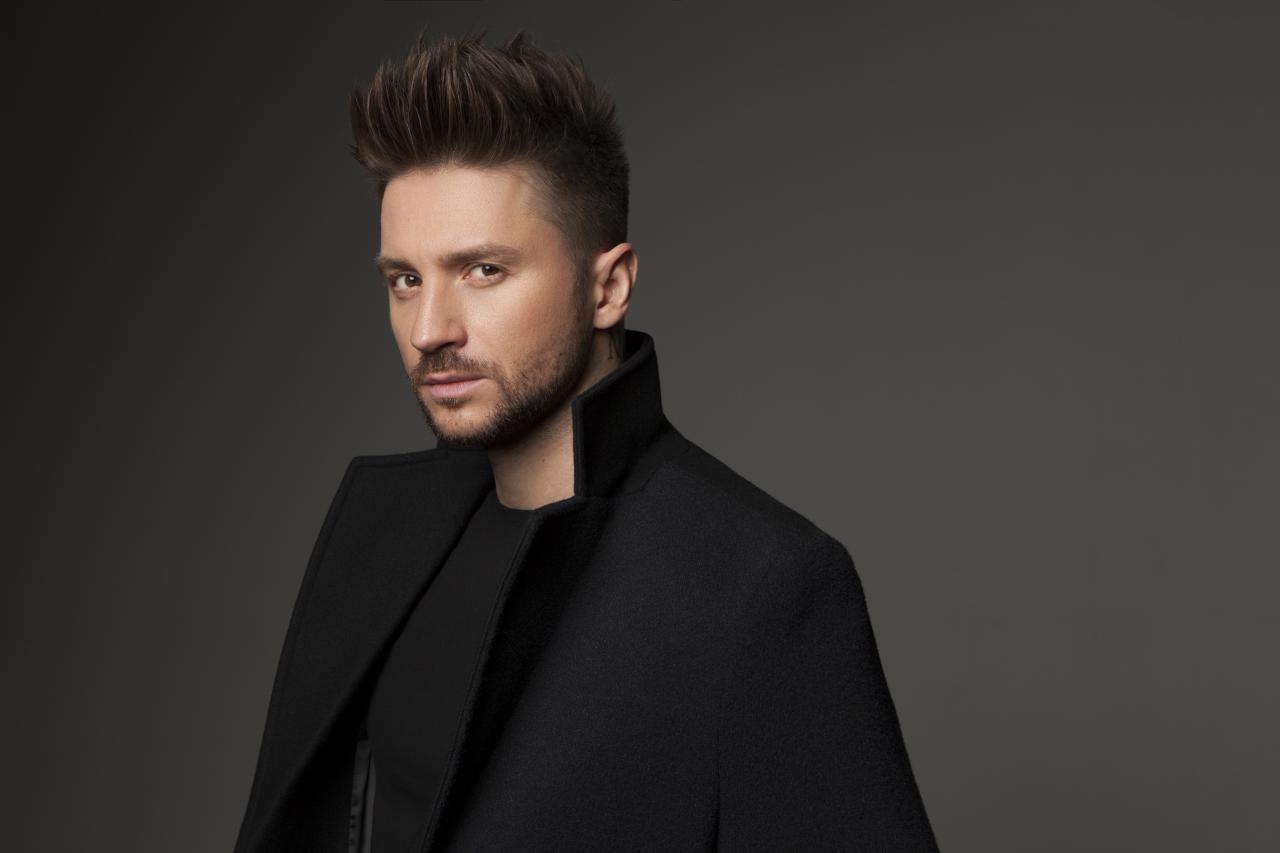
Sergey Lazarev: pop sensation and overall very good looking chap
8. Iceland is sending… something different
Everyone likes a bold novelty act at Eurovision and this year it’s being served up by Iceland. Hatari are a BDSM anti-capitalist hard-rock band from Reykjavik who stormed Iceland’s national selection this year with their song Hatrið mun sigra, which means ‘Hatrid will prevail.’ They performed on stage in full bondage gear, complete with a dancing gimp.
The song is actually really good, and I genuinely hope they do well.
9. Australia is in Eurovision 2019
Yes, Australia is now a permanent fixture. Why? No-one’s really sure, but this goes some way to explain it.
10. Ukraine is not in Eurovision 2019
Ukraine might not be taking part in the Eurovision Song Contest this year, but they did manage to deliver the most drama. Make yourself a brew, because this is a long story…
(Be warned: I wrote this in a looooot of detail. Scroll down for the short version.)
Why did Ukraine pull out of Eurovision 2019?
LONG VERSION: As they have done the past few years, two Ukrainian broadcasters came together to put on Vidbir, the show which determines Ukraine’s national entry for Eurovision. As in previous years, one of the three professional jury members was Jamala.
Bit of backstory on Jamala: she won Eurovision in 2016 with her very emotive ethnic ballad about the deportation of Crimean Tatars in 1944 (the name of the song). The song was seen by some to be a giant middle finger to Russia, who came third, despite being the favourites to win, elevating Jamala to the level of a Ukrainian national hero.
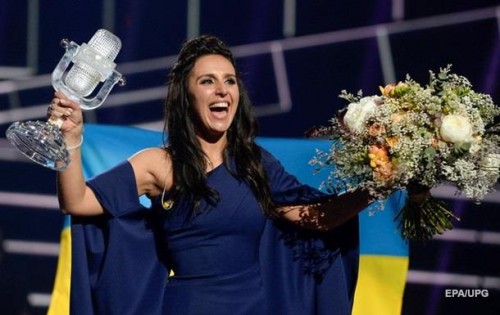
Jamala as the winner of Eurovision 2016
Back to 2019. After the first semi-final of Vidbir, singer MARUV emerged as a clear favourite with her very raunchy entry Siren Song. She didn’t get full points from the judges though, who preferred a modern interpretation of Ukrainian folk songs. She was also critiqued for her vocals, which could have been stronger. Fast-forward to the final two weeks later and MARUV pulled it out of the bag – her vocals were much stronger, she and her dancers changed up the routine and she looked like the one to beat.
Directly after her performance, however, she was ripped apart by the judges (particularly Jamala), not based on her performance, but on her ties to Russia. MARUV has a contract with a Russian music label, appeared on a Russian talent show and was mentored by Sergey Lazarev, Russia’s Eurovision entry. MARUV was visibly upset. The worst came when Jamala donned a terrible English accent to ask MARUV whether Crimea was Russian or Ukrainian. The moment became a huge meme among the Eurovision fandom, but many were shocked at the question – it was basically like asking the British entrant whether he voted Leave or Remain on live TV.
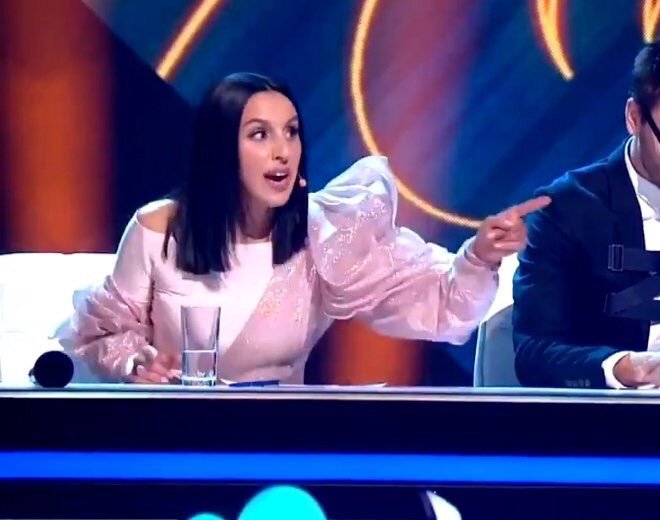
Jamala questioning MARUV: “Crimea – is Ukraine….?”
Just when you thought one night of TV couldn’t get any weirder, before the results were revealed, the presenter was handed an announcement stating that the winner of the show would not automatically become the entrant for Ukraine until they had signed a contract and agreed to the broadcaster’s terms. This had literally never happened before.
MARUV won, as predicted. The official Eurovision Facebook channel announced her as the winner (as is custom).
And then suddenly the Ukrainian broadcaster announced that she wasn’t the official entrant yet, as terms needed to be agreed. Again, this had never happened before. The Eurovision channel retracted their statement.
MARUV then entered into discussions with the broadcaster, reaffirming that she wished to represent Ukraine and only Ukraine at Eurovision 2019. However, after several days of negotiation, MARUV confirmed she could not come to an agreement with the broadcaster and would not be representing Ukraine.
That’s when the real drama began for UA:PBC, Ukraine’s broadcaster; MARUV released the details of her contract, which included: the cancellation of upcoming planned gigs in Russia, agreeing to no contact with journalists or press without prior approval from the broadcaster, no ‘improvising’ on stage or actions not pre-approved, and the caveat of a fine of €67,000 should these rules be breached. The broadcaster also did not offer up any funds for the singer to actually fly to Tel Aviv.
The story was then picked up by international media, including the BBC, The Telegraph, The Irish Independent among a sea of others. There was a huge outpouring of support for MARUV, including from 2018’s Ukraine entrant who confirmed no such clauses had been included in his contract. Russia even stepped in and offered MARUV the chance to perform as their entrant in 2020 (she politely declined).
The broadcaster then offered the group who came second in Vidbir the chance to represent Ukraine. They declined – and very publicly, too. They approached third place. They declined too.
Ukraine then announced their withdrawal from the contest, promising to return in 2020 – unless it is held in Russia.
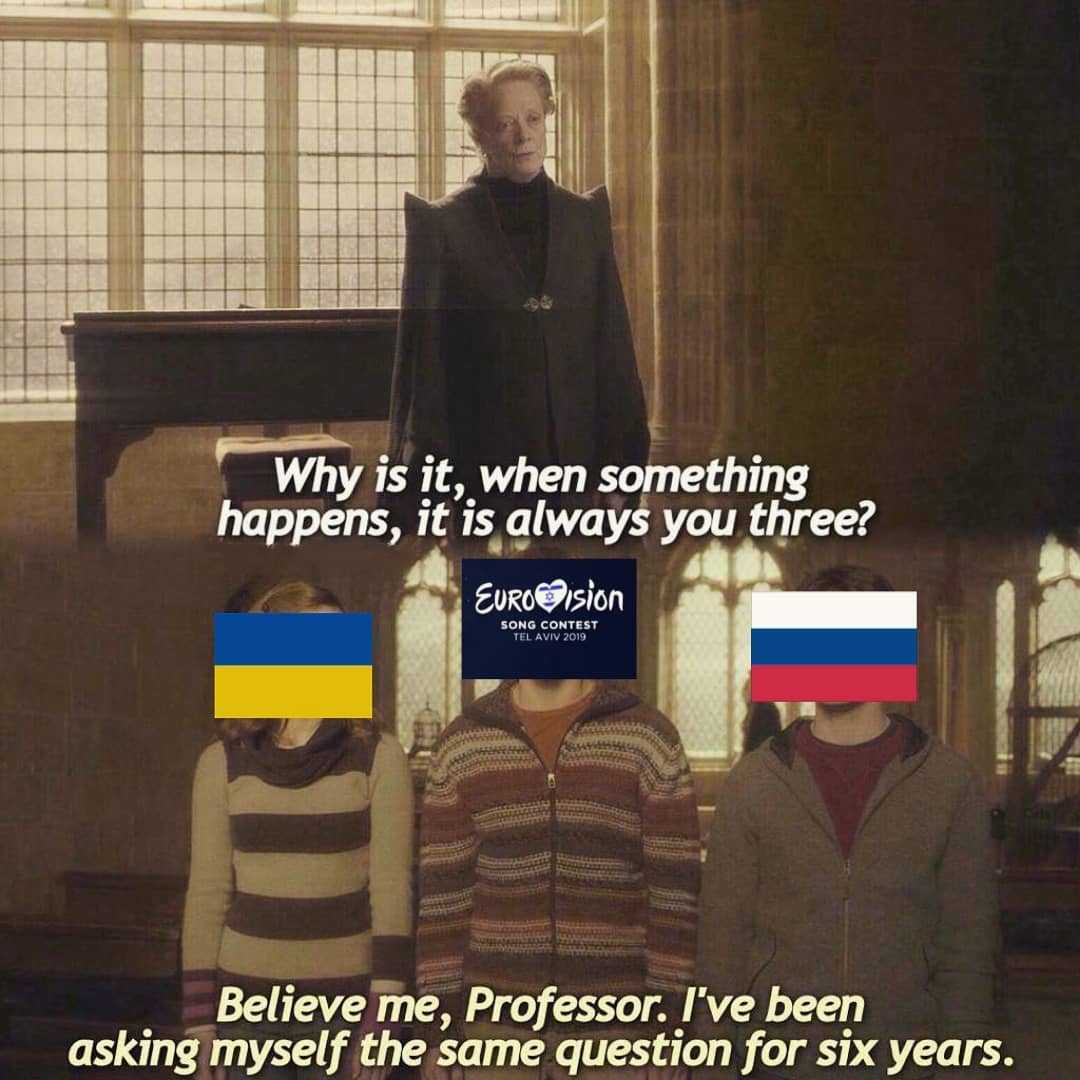
A hilarious Eurovision meme (one of many)
SHORT VERSION: Ukraine banned their own Eurovision entrant for refusing to agree to their ridiculous rules (put in place for her perceived pro-Russian stance) and in the fall-out, many artists publicly refused to go in her place. Madness.
Eurovision 2019: my predictions
The following predictions are based purely on my knowledge of the contest, the Eurofandom and my gut instinct… which is so-so at best. (I did however actually predict four of the top 5 of the 2015 contest.)
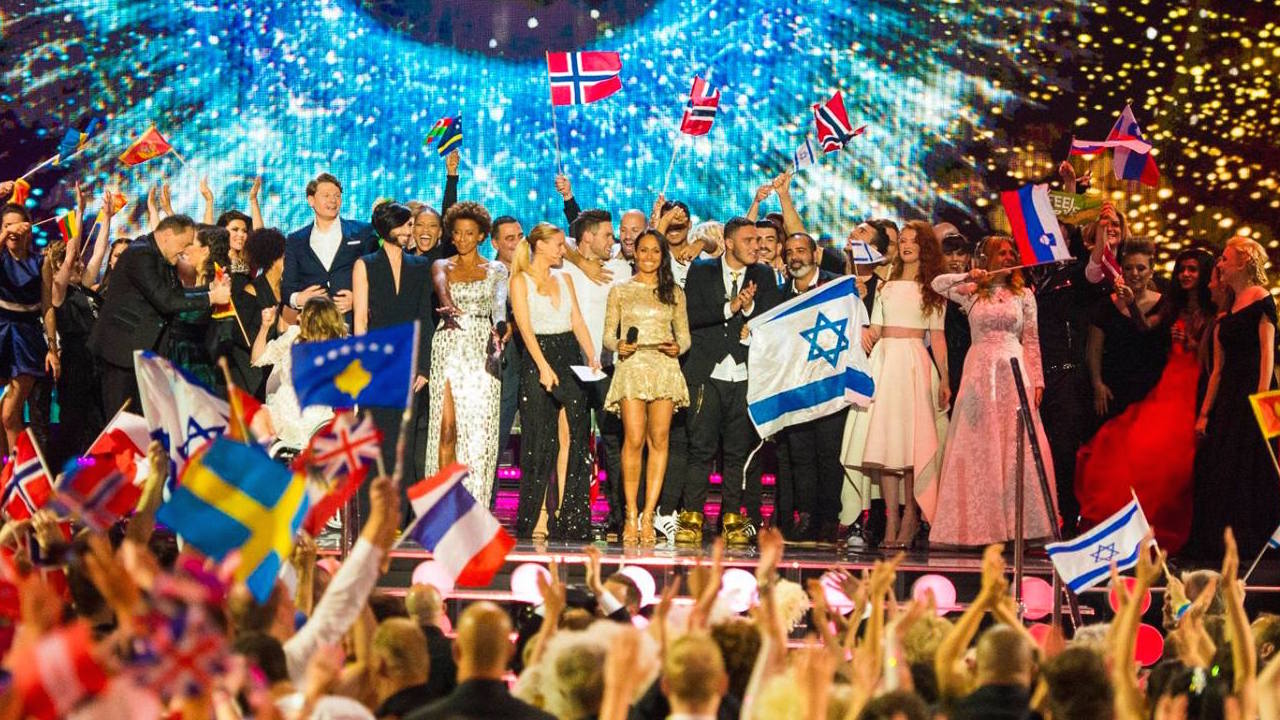
Eurovision 2015 | Source: MusicFeeds.com.au
Some predictions for Eurovision 2019 semi-final one
The first semi-final will be held on 14 May.
- Georgia to finish last
- Australia to fail to qualify (for the first time ever)
- Belarus to be surprise qualifier
Some predictions for Eurovision 2019 semi-final two
The second semi-final will be held on 16 May.
- Latvia to finish last
- Austria to fail to qualify (first time since 2013)
- Lithuania to be surprise qualifier
- Denmark to be surprise qualifier
- Albania surprise non-qualifier
Some predictions for Eurovision 2019 final
The final will be held on 18 May.
- Greece to finish top 10
- Norway to finish top 5
- France & Germany to finish bottom 5
- Czech Republic to do well with jury vote
- Lithuania to finish last
What are your predictions for the contest this year?
Comment below!

